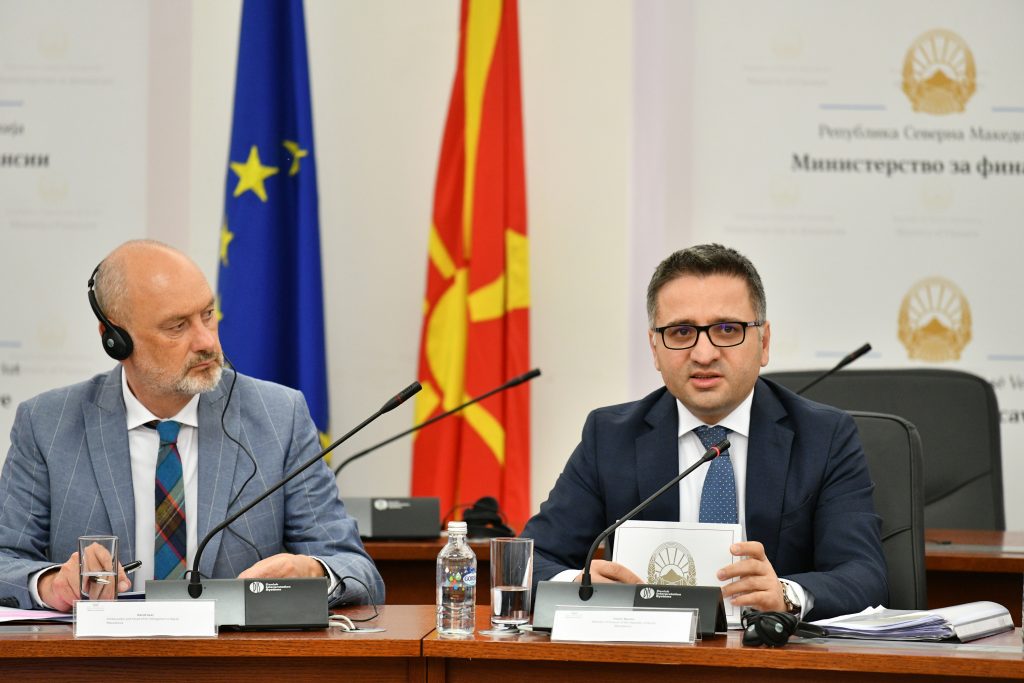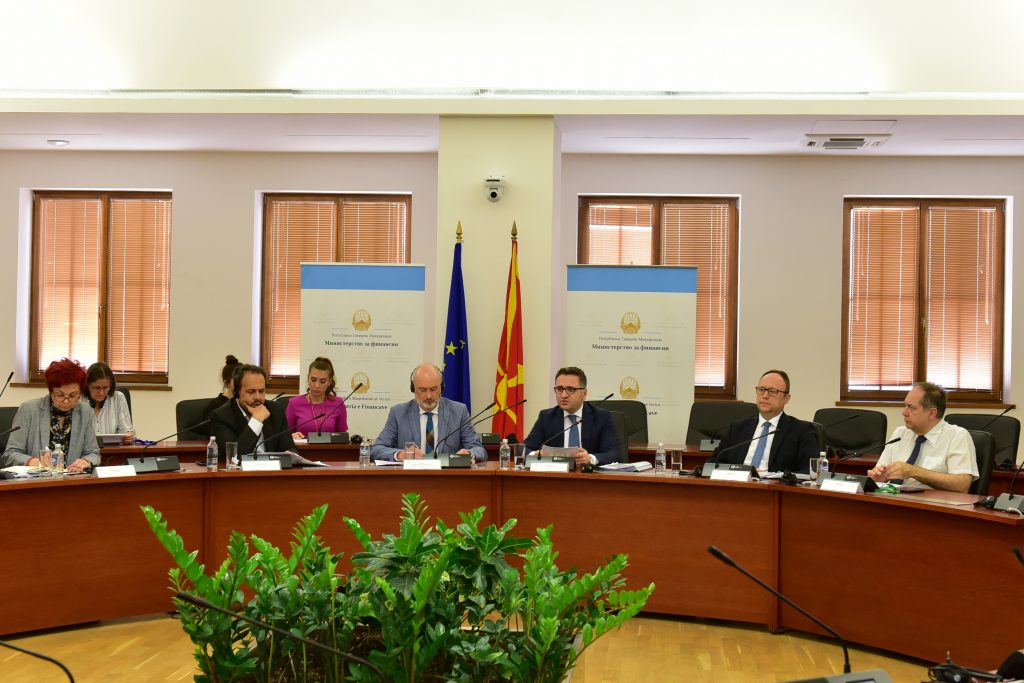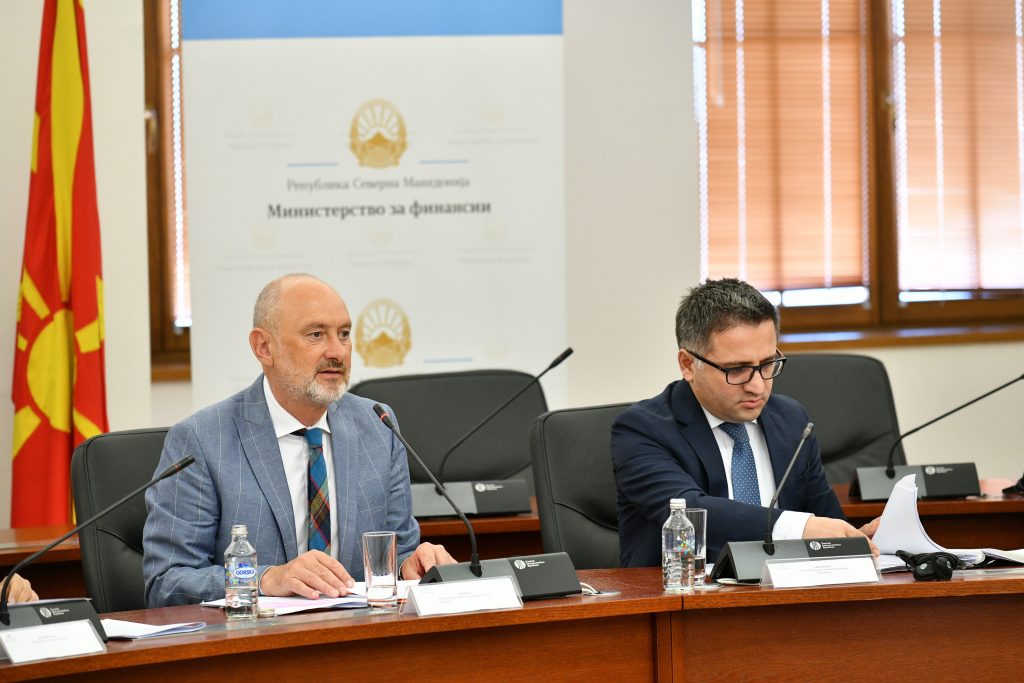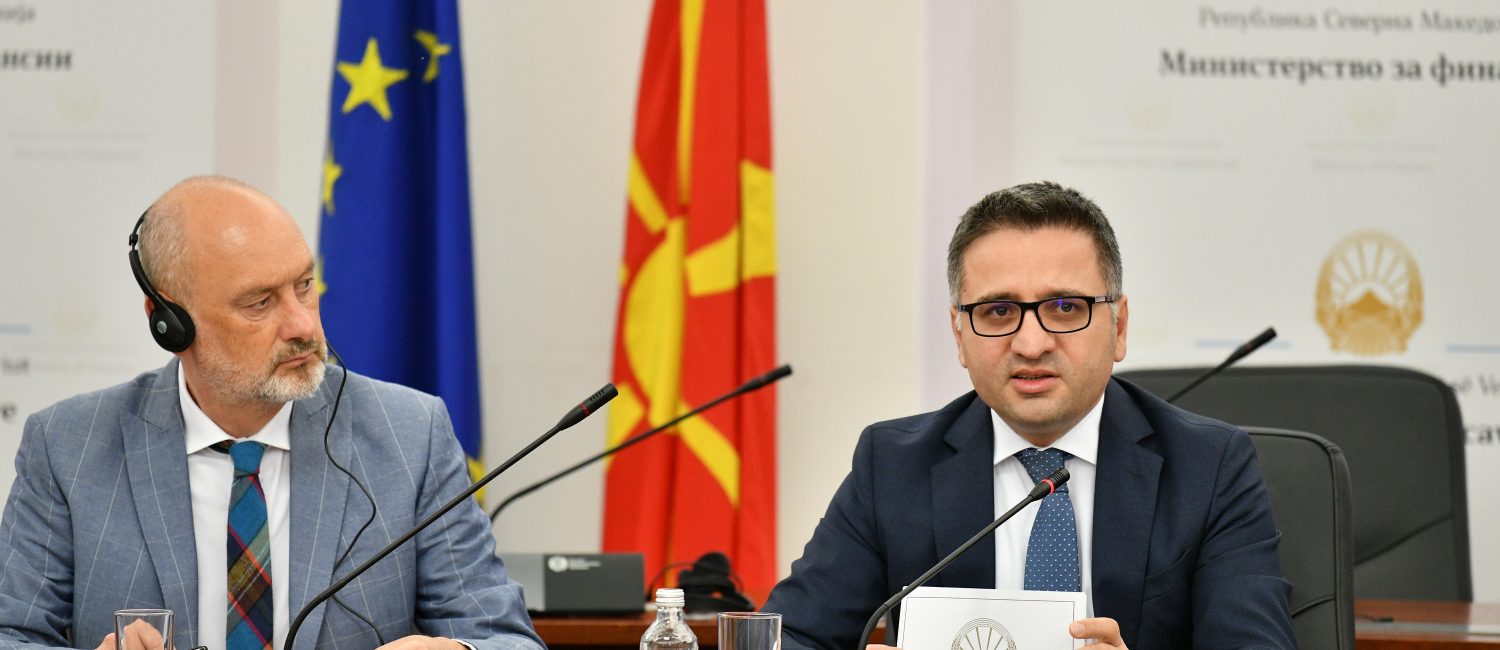26th May 2022, Skopje – Building up economic resilience in the longer term, by accelerating green and digital transition of the Western Balkans and Turkey, including appropriate use of EU financial support through the Instrument for Pre-accession and the European Fund for Sustainable Development Plus. In light of high uncertainty about the pandemic and the impact of the Russia’s invasion of Ukraine, standing ready to provide well-targeted, transparent and temporary support to vulnerable households and companies would be appropriate, if needed. These are one of the essential joint conclusions of the Economic and the Financial Dialogue between the EU and the Western Balkans and Turkey, which were adopted in Brussels on 24th May 2022, upon which the preparatory activities for the next 2023-2025 Economic Reform Program (ERP) commence, Minister of Finance Fatmir Besimi and the EU Ambassador David Geer stated on a joint press-conference.

In this regard, Minister Besimi stressed that maintaining price stability and providing support for sustained growth this year will be essential. Moreover, while accelerating growth in the medium term, the focus will be placed on fostering green transition, strengthening the human capital, boosting the competitiveness of domestic companies and their integration in the global value chains, as well as formalization of the economy.
“In addition to the package of 26 measures in response to current crisis, under the Supplementary Budget adopted by the Government, additional funds are provided in case of a need for new measures. Furthermore, under the current environment, where impact of energy crisis is hampering the growth, one of the key challenges in the coming period will be energy efficiency and renewable energy sources. As one of the main pillars that this three-year Program rest upon is strengthening human capital as one of the key challenges to boost the competitiveness and the economic growth. Maintaining and straightening human capital is a multidimensional issue and requires continuous investments and bottom up approach, process, wherein the focus should be placed on enhancing the quality of education “, Minister Besimi said.
Provided the economic recovery remains on track, in the medium term, fiscal policy should increasingly focus on deficit and debt reduction and the re-building of fiscal buffers.

Looking beyond the current crisis, all participants at the economic and financial dialogue, as it is noted, agreed that the economic policy dialogue should continue to play a central role in providing jointly agreed policy guidance to support a medium-term sustainable economic recovery and help the enlargement partners to gradually meet the economic criteria for EU accession.
“The policy guidance in 2022 for North Macedonia focuses on providing support to vulnerable households and firms in the short-term; and on consolidation of the budget in the medium-term. The EU has decided to take more responsibility for its security and take further decisive steps towards building a European resilience. This means reducing dependencies, designing a new growth and investment model for 2030, and also developing greater energy diversification. Our partners are encouraged to follow suit”, pointed out EU ambassador Geer.
The priority structural reforms agreed at the Dialogue include the swift introduction of fiscal rules and the establishment of a fiscal council, building on progress achieved in the preparation of a new organic budget law; the implementation of the Tax System Reform Strategy with revenue-enhancing measures; as well as improvement in the management of public investment.

The recovery would also benefit from further efforts to tackle corruption, improve the rule of law, enhance transparency and strengthen institutions and social dialogue, it is noted at the press-conference.
Monetary policy, as it is concluded at the Dialogue, has been appropriately accommodative. The rise in inflation mainly reflects global factors, but going ahead, inflation expectations should be closely monitored. The banking sector, as it is noted, remained sound.
Representatives of the EU Member States, ministers of finance of the Western Balkans and Turkey, the European Commission and the European Central Bank, as well as representatives of the central banks of the Western Balkans and Turkey met early this week in Brussels for their annual economic policy dialogue. The dialogue aims to prepare the Western Balkans and Turkey for their future participation in the European Semester that is the highest level of economic policy coordination of the European Union. Deputy Minister of Finance Filip Nikoloski and the Vice Governor of the National Bank, Emilija Nacevska, represented the country in Brussels.
















